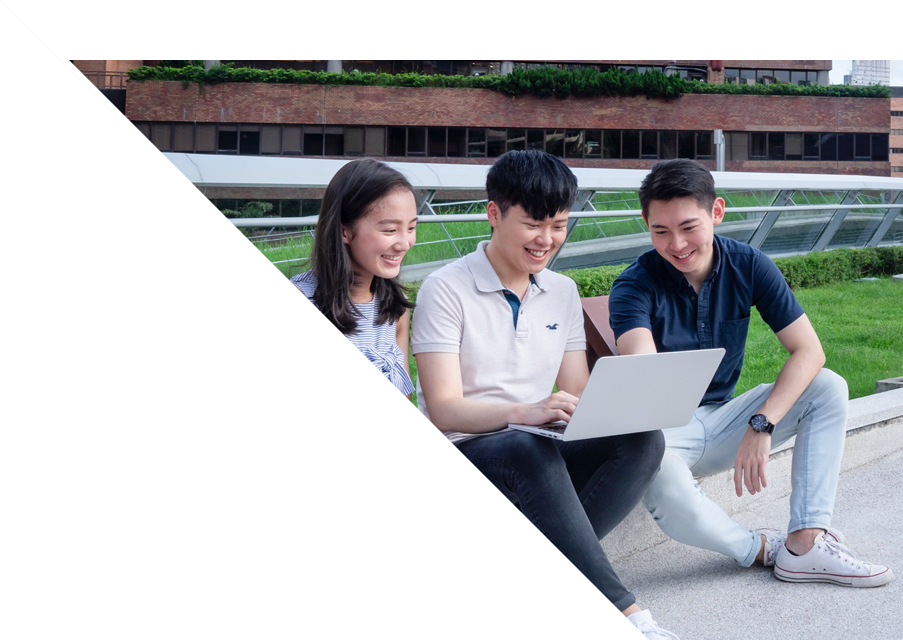Sept 2026 Entry
4 years
Accumulation of at least 120 credits (plus 5 Industrial Centre training credits and 4 Work-
Dr Kenneth Chik-chi CHENG
The credit requirements for this scheme are indicative only and subject to review.
Students will be awarded the following upon successful completion of the graduation requirements:
BSc (Hons) in Sports Science and Technology
What's New

- Undergraduate

- Undergraduate
-
Background
The field of sports science and technology is growing rapidly, due not only to the increased awareness of personal health management and the appeal of professional or competitive sports but also to the emerging use of technological innovations to enhance athletic performance and safety, as well as revolutionary changes in sports management.
Spearheaded by advances in microtechnology and wearable sensors combined with various motion capture, artificial intelligence and machine learning technologies, athletes and coaches are now able to make data-driven decisions to maximise their potential while minimising their risk of injury. The general public can also use smart performance-tracking devices to monitor physical health through various biometrics, enabling them to enhance their exercise experience and overcome barriers to physical activity.
-
Aims
Demand is expected to surge for Sports Product Specialists and Engineers who can apply and develop these innovative technologies to optimise human interaction and athletic performance within the world of sports. The aim of our interdisciplinary BSc(Hons) in Sports Science and Technology curriculum is to equip students with both traditional sports science knowledge and the technical and engineering skills needed to meet the challenges of this emerging global field.
-
Characteristics
Foundational knowledge about sports science and technology will be taught by both faculty members through our interdisciplinary curriculum and by field experts who will be invited to share the latest industry knowledge and experiences through workshops and seminars. In addition, students will engage in practical learning through industrial internships (280 hours) and study tours.
Internships provide students with excellent opportunities to apply the theoretical knowledge gained in the classroom in real-world settings, accumulate relevant experience and develop essential workforce skills for their future careers. Study tours expose students to non-local learning opportunities through attending relevant conferences, exhibitions and major sporting events, as well as visiting university laboratories and sports product companies. Exchange opportunities with our overseas partner institutes or through Faculty- and University-level exchange programmes are also available.
All admitted students will embark on a Common Year One curriculum. Towards the end of year one, students can decide whether to continue with their initial choice or switch to another choice within the Faculty of Engineering. Those who wish to change to another choice need to join a competitive process through a ranking assessment, which considers a combination of entrance qualification score, Year One GPA, and interview performance.
Career Prospects
Professional Engineering Practice
The emerging interest in investment in the research and innovation, design and manufacturing of sports products, as expressed by the Hong Kong and Chinese government and private sports companies, will provide ample opportunities for our graduates to develop careers in the sports industry. Graduates will be able to apply their knowledge in sports science and technology to careers in sports product industrial settings as Sports Product Engineers, Sports Product-testing Engineers, Technical Sales Managers and other roles, enabling them to develop or promote innovative sports products to enhance users' experiences.
Professional Sports Training and Analytics
Graduates will also be equipped to work as Sports Biomechanists, Sports Physiologists or Sports Performance/Data Analysts, allowing them to contribute to elite or professional sports settings by enhancing sports performance and management at individual and/or team levels.
Basic and Applied Research in Engineering, Sports, and Health-related Disciplines
Graduates will also be equipped to conduct basic and applied research and/or pursue further studies in sports science, coaching, engineering, sports management/marketing, rehabilitation science or other health-related disciplines.
-
The curriculum includes both academic studies and practical training in Sports Science and Technology.
-
All admitted students will embark on a Common Year 1 curriculum within the Faculty of Engineering, which provides them with foundational knowledge of engineering technology.
-
Year 2 subjects further establish students’ fundamental knowledge in subjects more specific to sports science (e.g. anatomy and physiology) and biomedical engineering (e.g. bioelectronics and biomechatronics), preparing them for more advanced subjects in Years 3 and 4.
-
Year 3 subjects further strengthen students’ knowledge of sports science and technology. Students are provided the opportunity to combine sports science and engineering concepts while developing critical inquiry and thinking skills. A unique feature of our curriculum is "Biomedical Engineering Innovation for the Community," a two-semester subject in Year 3. This course gives students the chance to build innovative exercise device prototypes for people in need. Starting in Year 3, students can select elective subjects according to their aspirations. Additionally, biomedical engineering internships are arranged during the summer semester to broaden students' real-world experience in the field.
-
Year 4 subjects provide students with opportunities to synthesise their learning, solve complex problems and prepare for the next step, whether this will involve launching a sports science and technology career or pursuing further education. Students continue to select elective subjects and a Capstone project aligned with their strengths and interests.
Satisfy the University's General Entrance Requirements.
Please click here for the subject weightings for 2026/27.
There is no compulsory subject requirement. Preferred subject(s) with the highest weighting for admission score calculation include(s):
Relevant Applied Learning subject(s) that can be considered for meeting the University entrance requirement and admission score calculation is/are:
No scores from previous cohorts can be provided for reference.
For further information, please contact:
BME General Office (Tel.: 3400 8577; Email: bme.info@polyu.edu.hk)
Required
Optional
If applicable
To evaluate the applicant's potential and interest in the scheme, and to observe the applicant's communication skills, logical thinking, and interpersonal skills.
15 minutes
Selected applicants will be invited for the interview.
Required
Optional
If applicable
To evaluate the applicant's potential and interest in the scheme, and to observe the applicant's communication skills, logical thinking, and interpersonal skills.
15 minutes
Selected applicants will be invited for the interview.





